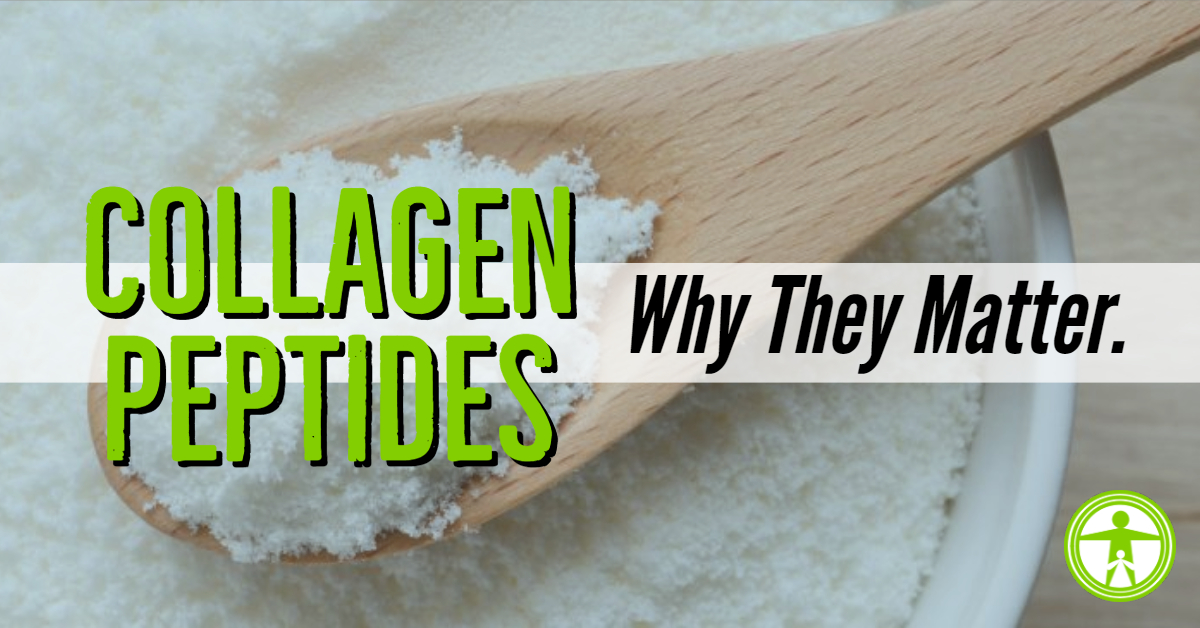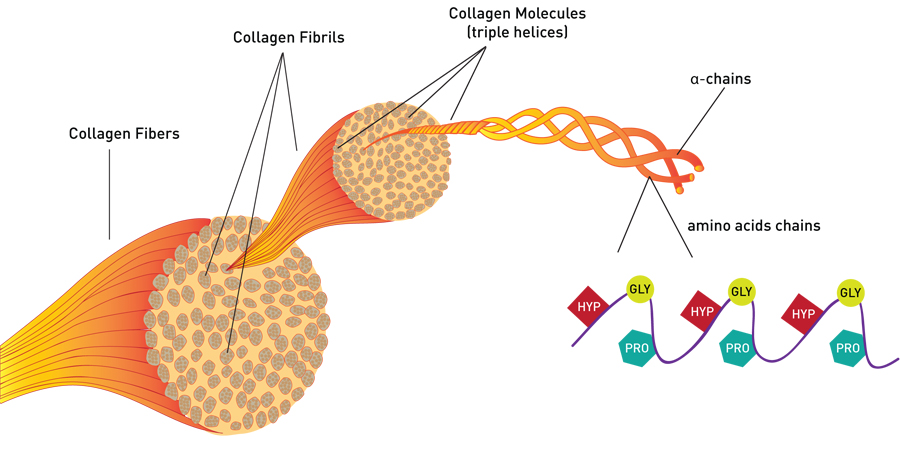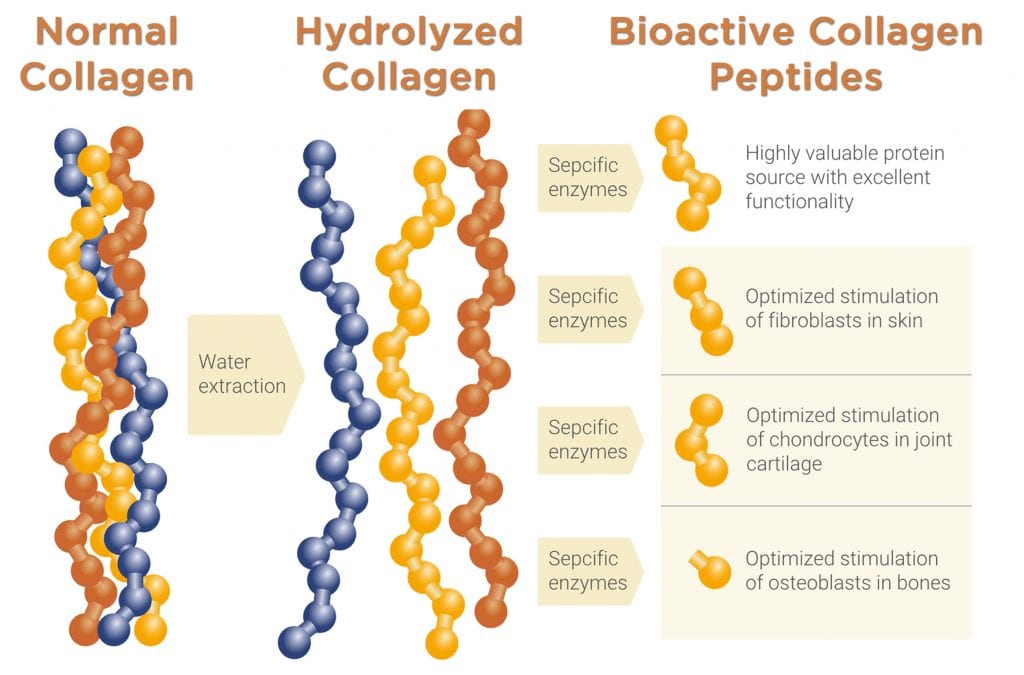Collagen is quite literally – The Body's Protein. In fact, 30% of our total body protein is collagen.
This makes collagen a crucial component for mobile joints, stable bones, healthy muscles, strong ligaments and tendons, smooth skin, glossy hair and healthy finger nails.
It is one of the primary structural proteins of connective tissues and also abundant in blood vessels, intervertebral discs, the blood-brain barrier, the cornea, dentin and the intestinal wall.
Because collagen is so important for our body, dozens of collagen products are now on the market.
But not all collagen supplements are the same.
In fact, a majority of collagen supplements won't contribute to the benefits simply because they're poorly formulated.
In this article, I'm going to discuss what collagen is, how it's formed and the various types of products that are out there.
What is Collagen?
Collagen is a protein made up of long chain amino-acids (i.e. glycine, proline, hydroxyproline, and arginine), all of which help our body's connective tissue, skin, hair, nails, as well as gut health stay as healthy as possible.
Collagen is formed from three very long chains of over 1,000 amino acids twisting into a rope like helix conformation. This tightly twisted helix (rope) gives collagen the strength to build our body, but is difficult to break down during digestion and too large to cross the intestinal wall, so in it’s unhydrolyzed, full-length form, collagen is not an effective oral supplement.
Today, 1 out of 4 people suffers from joint problems due to collagen deficiency and that number is continually increasing. The principal cause of joint degeneration is wear and tear brought about by age, excess activity and stressed joints.
How Do We Get Collagen In Our Diet?
When it comes to the food sources of collagen, the main foods include animals sources of protein, including beef, chicken, fish and egg shell membranes.
Here’s a bit about how these collagens differ and benefit us:
- Bovine (cow or beef) collagen: Bovine collagen comes from cows, specifically their skin, bones and muscles. Bovine collagen is rich in glycine and proline, and therefore useful for creatine production, building muscle and helping the body make its own collagen.
- Chicken collagen: The type of collagen most abundant in chicken collagen is type 2, which is best for building cartilage. Most supplements containing collagen usually use chicken collagen and provide type 2.
- Fish collagen: Collagen derived from fish has been found to be easily absorbed and provide mostly type 1 collagen.
- Egg shell membrane collagen: Egg collagen, found in the shells and whites of eggs, contains mostly type 1 collagen.
Food is certainly the best medicine and I would advise anyone interested in optimizing nutrition to consider the following dietary recommendations to increase collagen:
- Making and drinking real bone broth.
- Using protein powder made from bone broth in recipes.
- Consuming “nose to tail” parts of animals. I know this kind of sounds gross, but your ancestors ate them and these structures contain a lot of collagen.
What Makes Collagen Peptides Different?
It's important to understand that not all collagen products are made the same.
To understand the difference between regular collagen versus collagen peptides, it is important to understand that collagen peptides are made by breaking down the full-length collagen molecules into smaller “peptides”.
They are made of the same amino acids as collagen, but have different properties and absorption rates.
In short, Collagen peptides are more bioavailable – they are better absorbed into the bloodstream because they are much shorter chains of amino acids than collagen and gelatin. Because they’re shorter, collagen peptides are more readily broken down into a form that can enter the bloodstream upon digestion.
After absorption, collagen peptides travel throughout the body, repairing, rebuilding and providing energy. Collagen peptides are shuttled to the different tissues where cells will build the peptides into full-length collagen helices to repair our skin, bones and joints, or the cells can use the amino acids directly for energy.
Still, just because you have a supplement that contains “collagen peptides”, it doesn't mean those peptides are doing what we want them to do… repair your tissues.
Why I Created Bioactive Collagen Peptides
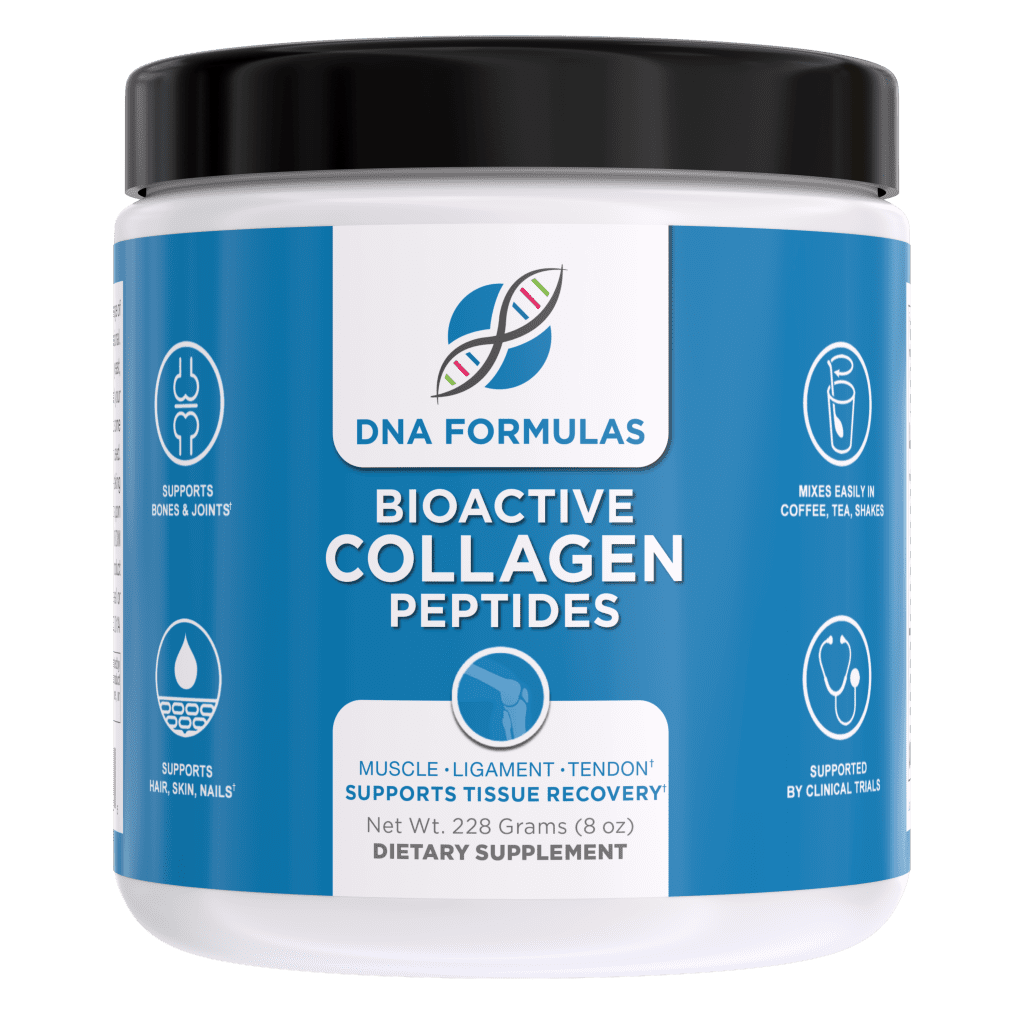
This not only leads to wrinkles and decreased elasticity of my tissues, but to soft tissue and joint discomfort.
I've been a fan of collagen for years and I've been taking collagen supplements for as long as I can remember.
However, given the fact that industries mature and clinical studies come out in support of nutritional supplements, I like to stay ahead of the game and decided to create my own collagen product.
Bioactive Collagen Peptides was created to contain 3 patented ingredients with several clinical studies and scientific papers to back up it's purpose of reducing joint damage, repairing and rebuilding ligaments, muscles and tendons and increasing overall strength.
Bioactive Collagen Peptides Protects Your Joints
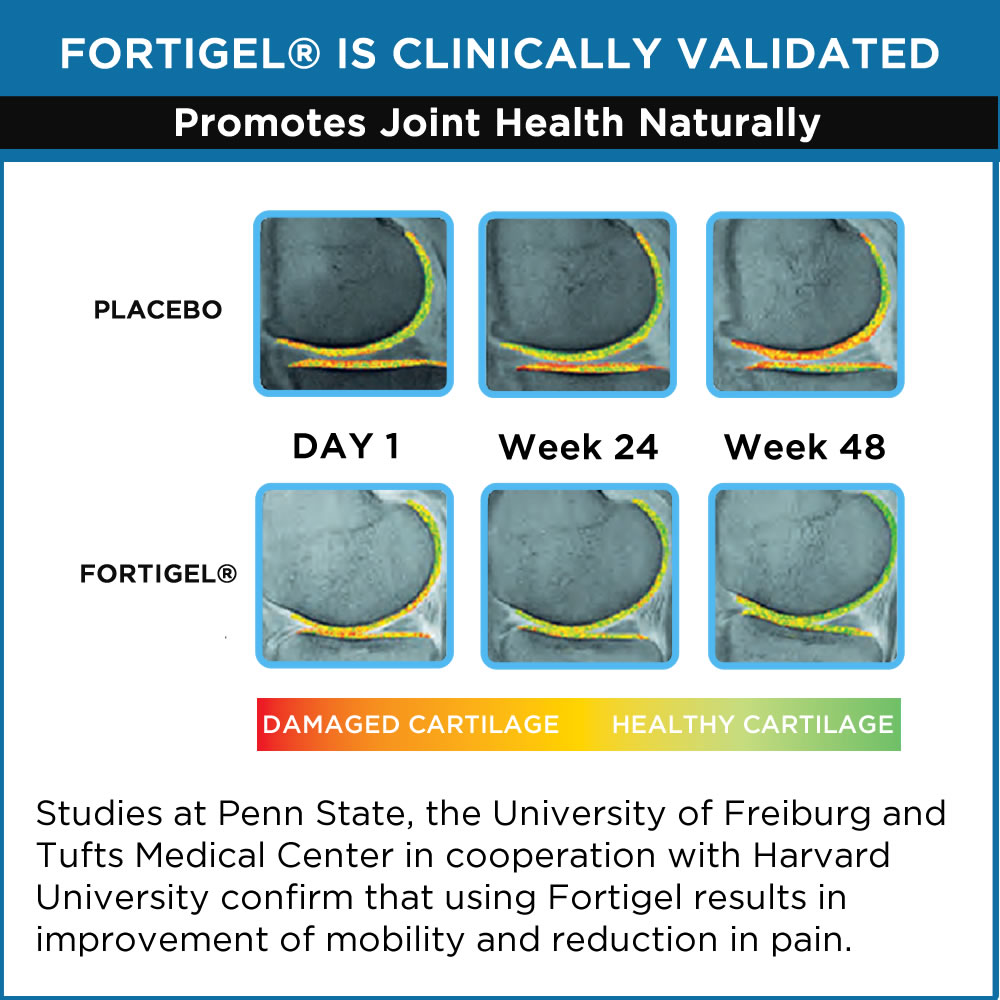
In fact, a randomized, double-blind, placebo-controlled clinical trial performed in cooperation with Harvard Medical School and Tufts Medical Center demonstrated that FORTIGEL® that has the potential to improve joint regeneration.
TendoActive® Helps to Repair Tendons and Muscles
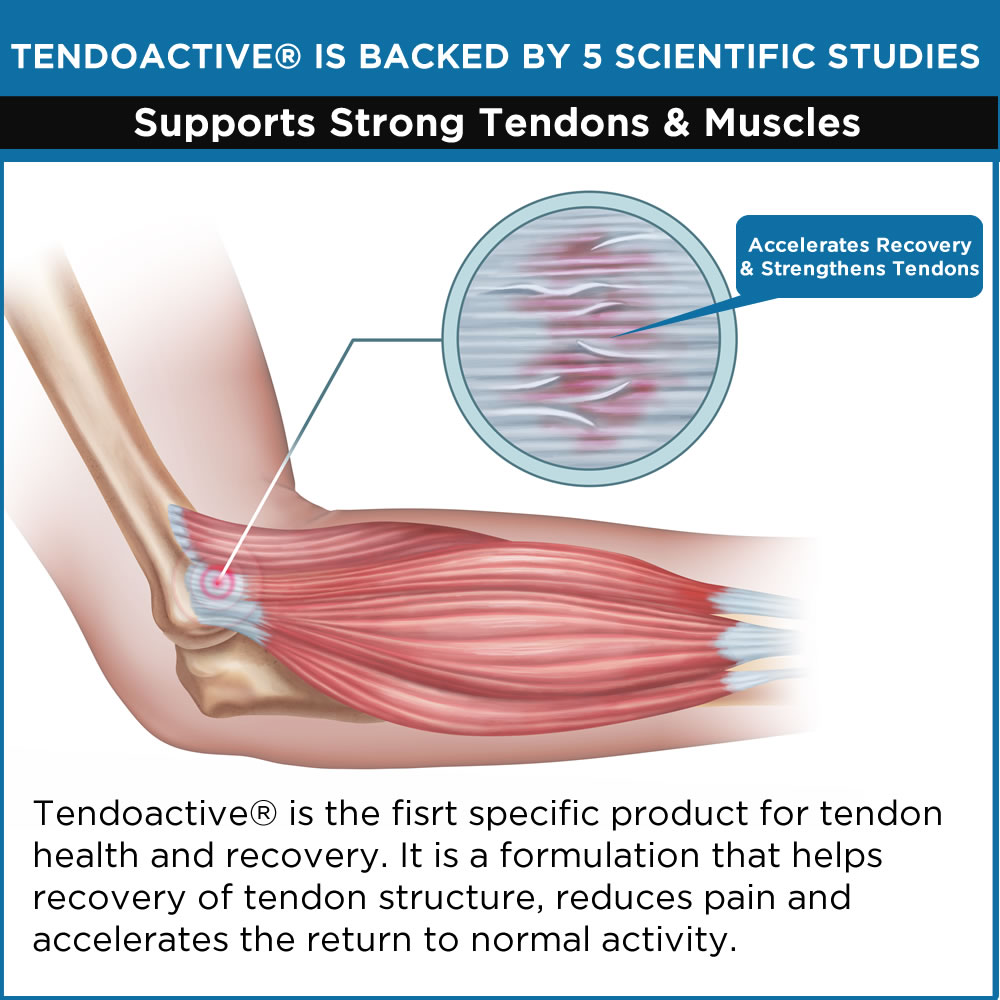
Tendoactive is a food supplement that contains type I hydrolyzed collagen, mucopolysaccharides, vitamin C and manganese, which contributes to the normal formation of connective tissue such as tendons and ligaments.
Mobilee® Reduces Inflammation and Increases Hyaluronic Acid
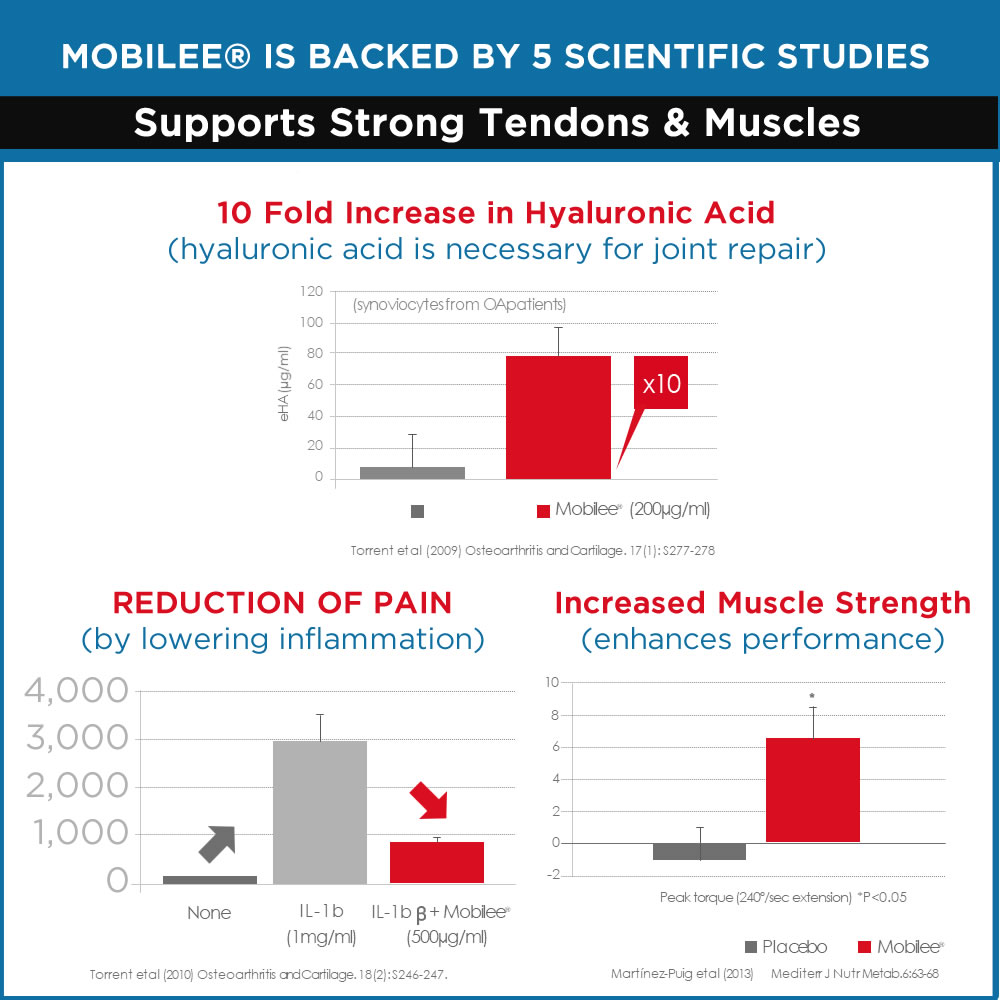
Hyaluronic acid is the lubrication for your joints and Mobilee® was shown to result in a 10x increase of hyaluronic acid, reductions of inflammation as well as pain.

